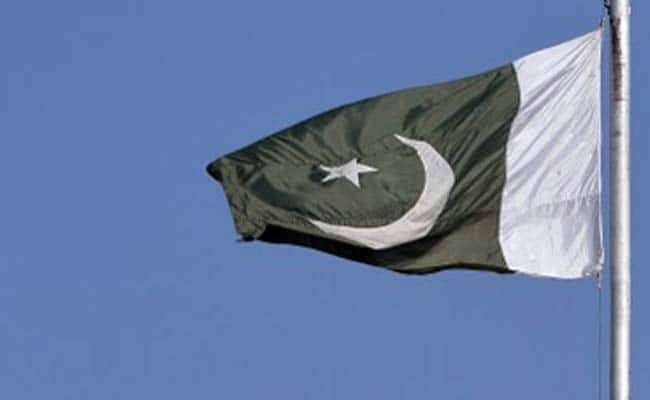
Pakistan's annual trade deficit was USD 20.435 billion when the PML-N came to power in 2013
Islamabad:
Pakistan's trade deficit ballooned by 42 per cent year-on-year to an all-time high of USD 30 billion in the first 11 months of the current fiscal year on the back of falling exports and a sharp increase in the import bill, a media report said today.
The high deficit came weeks after the government claimed that it has turned around the economy by achieving 5.3 per cent GDP growth.
Pakistan's annual trade deficit was USD 20.435 billion when the PML-N came to power in 2013. It has been on the rise since then due to rising imports and falling exports, the Dawn reported.
Trade deficit stood at USD 3.465 billion in May, a rise of nearly 61 per cent compared to the same month a year ago, according to the data released by the Pakistan Bureau of Statistics yesterday.
Two reasons explain the trade deficit: rising import bill of capital goods, petroleum products, and food products; and a steep fall in exports despite prime minister's support package to boost exports. The trade deficit is said to be posing a serious threat to external balance of payment.
In July-May, the overall import bill rose 20.6 per cent year-on-year to USD 48.54 billion. In May alone, it increased 28 per cent to USD 5.09 billion.
In the year 2012-13, the import bill was at USD 44.950 billion. It is expected to reach over USD 53 billion this fiscal year.
Exports fell 11 per cent year-on-year to USD 1.627 billion in May after witnessing paltry growths in the previous two months. Export proceeds grew 5 per cent in April and 3 per cent in March.
Exports are in decline despite government claims of providing the industry with round-the-clock power supply since November 2014. Similarly, the government was also providing Rs 3 per unit concession in electricity tariff since 2016 to export-oriented industries.
In the 11 months through May, the export proceeds fell to USD 18.54 billion from USD 19.14 billion a year ago.
Under a three-year Strategic Trade Policy unveiled last year, the government set an annual export target of USD 35 billion by 2018. To boost exports, the prime minister announced a subsidy package of Rs180 billion for textile, clothing, sports, surgical, leather and carpet sectors. The impact of this package on exports has yet to be seen.
The government has recently removed the commerce secretary, Azmat Ali Ranjha, for failing to promptly implement the trade policy. He was replaced by Younis Dagha, who was shunted out from the Ministry of Water and Power for his alleged failure to manage power load-shedding issues.
Under the Strategic Trade Policy 2015-18, the Ministry of Commerce notified five cash support schemes to improve product design, encourage innovation, facilitate branding and certification, upgrade technology for new machinery and plants, provide cash support for plant and machinery for agro-processing and give duty drawbacks on local taxes.
The high deficit came weeks after the government claimed that it has turned around the economy by achieving 5.3 per cent GDP growth.
Pakistan's annual trade deficit was USD 20.435 billion when the PML-N came to power in 2013. It has been on the rise since then due to rising imports and falling exports, the Dawn reported.
Trade deficit stood at USD 3.465 billion in May, a rise of nearly 61 per cent compared to the same month a year ago, according to the data released by the Pakistan Bureau of Statistics yesterday.
Two reasons explain the trade deficit: rising import bill of capital goods, petroleum products, and food products; and a steep fall in exports despite prime minister's support package to boost exports. The trade deficit is said to be posing a serious threat to external balance of payment.
In July-May, the overall import bill rose 20.6 per cent year-on-year to USD 48.54 billion. In May alone, it increased 28 per cent to USD 5.09 billion.
In the year 2012-13, the import bill was at USD 44.950 billion. It is expected to reach over USD 53 billion this fiscal year.
Exports fell 11 per cent year-on-year to USD 1.627 billion in May after witnessing paltry growths in the previous two months. Export proceeds grew 5 per cent in April and 3 per cent in March.
Exports are in decline despite government claims of providing the industry with round-the-clock power supply since November 2014. Similarly, the government was also providing Rs 3 per unit concession in electricity tariff since 2016 to export-oriented industries.
In the 11 months through May, the export proceeds fell to USD 18.54 billion from USD 19.14 billion a year ago.
Under a three-year Strategic Trade Policy unveiled last year, the government set an annual export target of USD 35 billion by 2018. To boost exports, the prime minister announced a subsidy package of Rs180 billion for textile, clothing, sports, surgical, leather and carpet sectors. The impact of this package on exports has yet to be seen.
The government has recently removed the commerce secretary, Azmat Ali Ranjha, for failing to promptly implement the trade policy. He was replaced by Younis Dagha, who was shunted out from the Ministry of Water and Power for his alleged failure to manage power load-shedding issues.
Under the Strategic Trade Policy 2015-18, the Ministry of Commerce notified five cash support schemes to improve product design, encourage innovation, facilitate branding and certification, upgrade technology for new machinery and plants, provide cash support for plant and machinery for agro-processing and give duty drawbacks on local taxes.
Track Latest News Live on NDTV.com and get news updates from India and around the world

